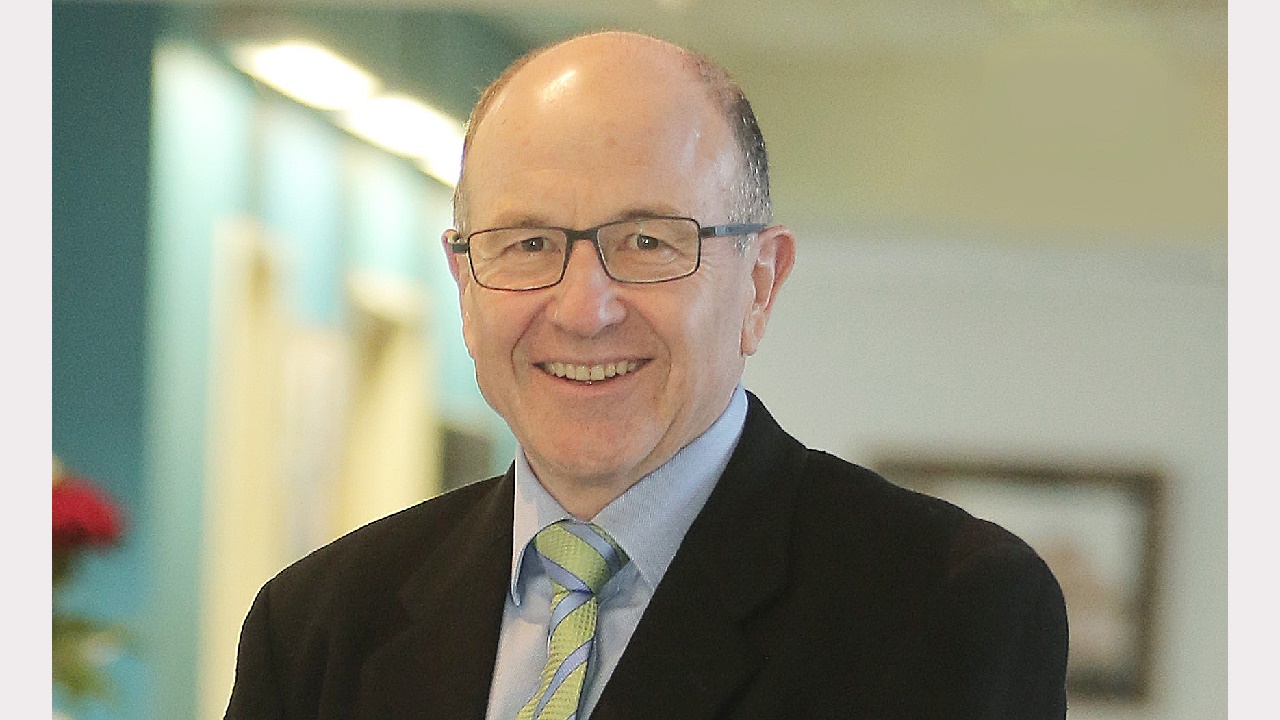Dr Philip Lee is dying to talk

Palliative care specialist Dr Philip Lee was recently named City of Parramatta Australia Day 2017 Citizen of the Year. The former GP, who is now director of supportive and palliative medicine at Western Sydney Local Health District, worked to achieve a fund for palliative care nursing education at Westmead Hospital. A strong advocate for palliative care, he wants to achieve a greater community understanding of what palliative care can offer people well before they die.
Below, Dr Lee answers questions from the Dying to Talk Discussion Starter. For support in discussing your end-of-life wishes with your loved ones, download it from www.dyingtotalk.org.au
If you had a condition that you could not recover from, what would be important to you, towards the end of your life?
Quality of life to enable me to enjoy life with my family. Remaining at home cared for by my family until I die, provided they are able to cope with the physical and emotional demands.
Are there any pets that you would like to see or be with you, if this is possible?
We recently lost our 14-year-old dog and are contemplating getting another from the pound. If we do, I would like this pet to be with me if possible.
Would you prefer a quiet environment or do you prefer activity and chatter around you?
I would like to be surrounded by my wife, children and very noisy five grandchildren. However there would be times when I would need some peace and quiet.
Would you like music to be playing and if so, what style or what music?
I’d really enjoy classical music and music from the 1970s to 1990s, especially Leonard Cohen, Dire Straits and Elton John.
If possible would it be important to you to have time outside?
Definitely. I have always been very physically active; running, hiking and more recently road cycling. I would like to continue some form of exercise for as long as possible. If I was not able to, then I would find being outside, preferably in the countryside, peaceful and calming
Would you prefer to be surrounded by lots of family and friends, or would you prefer one or two closest people to be with you?
My wife, two daughters and their partners, grandchildren, close friends and close professional colleagues. I would prefer to have just those closest to me around me; those happy to just sit and chat and not expecting me to engage in conversation if I was not able or was too tired.
Are there any cultural or religious practices you would like to observe?
Not really. I consider myself Christian and do have faith although I am not a regular church attendee. I believe I have lived my life in the Christian tradition, always respecting others.
Is there anything else you can think of that you would like?
I hope to be capable of preparing for my inevitable death in the future and ensure our finances are sorted. I hope to have had time to say my goodbyes, that I am peaceful and comfortable and that my dignity is maintained.
I would like to participate in preparing for my funeral, which will be a celebration of my life. I would like my ashes scattered on the breeze high up a mountain in the Wattamolla Valley near Berry, NSW.
What is on your bucket list of things you would like to do or achieve before you die?
- Have more time to enjoy my grandchildren growing up.
- Spend much more quality time in our little piece of heaven in the Wattamolla Valley.
- Become a palliative care advocate, not restrained by being employed by the health system, to ensure adequate funding for palliative care services.
- Cycle through the Pyrenees Mountains in France.
- Complete many more walking tours with my wife in Australia, New Zealand, France, Italy and other fascinating places.
- Cruise to the Antarctic
How did you feel during the process of completing this form? Was there anything about the process that interested or surprised you?
Completing this form reinforced the conversations I have with patient and families on a daily basis. So often they lose sight of what is really important in their lives at such a time, only focusing on further treatment options. Patients deserve honest opinions on the goals and likely outcomes of treatment and to be encouraged to focus on what is really important to them.
As I near retirement, I am motivated to continuing to live life to the full, contributing in other ways while having time to slow down and enjoy my family and the things in life that really bring a smile to my face.
